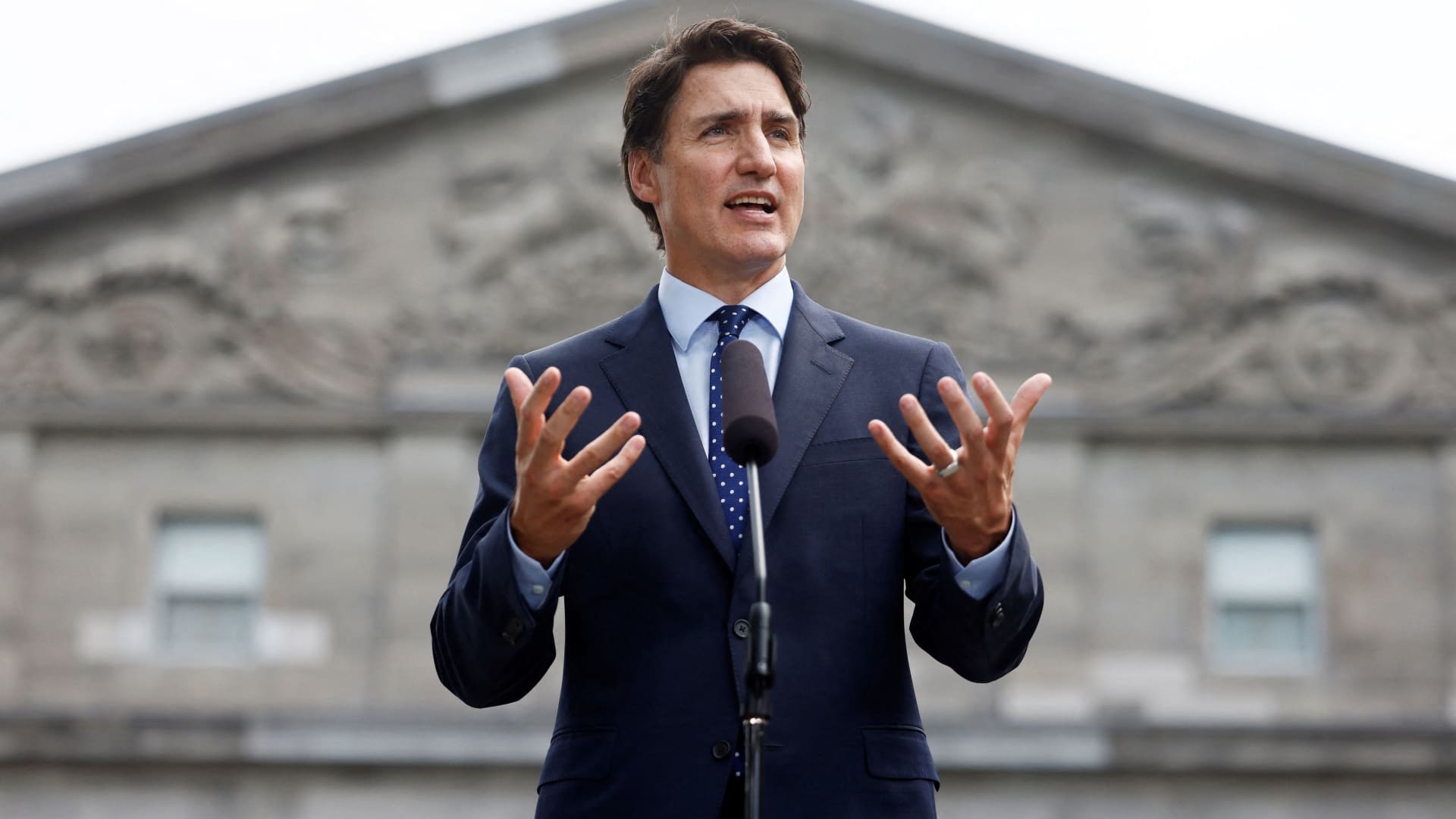Canada said on Monday it would impose 100% import tariffs on China-made electric vehicles, following in the footsteps of the U.S. and the European Union in slapping taxes over concerns related to unfair subsidies.
Canada already imposes 6.1% tariff on EVs manufactured in China and imported into Canada, the government said on Monday. The 100% tariff will come into effect from Oct. 1.
The country will also put a 25% tariff on China-made steel and aluminum imports, effective Oct. 15. China is the third-largest country for steel imports into Canada, according to the Canadian Steel Producers Association.
Canada’s EV, steel and aluminum industries face “unfair competition” and trade practices from China, the government’s finance department said. The U.S. and EU have made similar allegations, citing China’s “overcapacity,” which China has called “groundless.”
Canada said the new measures seek to “level the playing field for Canadian workers” and allow Canada’s EV, steel and aluminum producers to compete domestically and globally.
These steps will be reviewed one year from their effective dates and may be extended or supplemented with additional measures.
This comes as the Biden Administration in May announced a 100% tariff on Chinese EVs. The EU also hit China-made EVs with higher tariffs in July, though it slashed some of the planned tariffs on China-made Tesla EVs as well as other Chinese EV makers last week.
Vincent Chan, China strategist at Aletheia Capital, told CNBC’s “Street Signs Asia” on Tuesday that Canadian tariffs could hurt China’s EV growth momentum but “will not entirely eliminate it.”
In a statement on Monday, a spokesperson of the Chinese Embassy in Canada said China expresses “strong dissatisfaction and resolute opposition” to the move, adding that it “violates the WTO rules” and “will damage trade and economic cooperation” between China and Canada. The spokesperson added that China will take necessary action to protect its firms.
“I would like to emphasize that the rapid development of China’s EV industry is a result of persistent technological innovation, well-established industrial and supply chains, and full market competition,” the spokesperson said, adding that China’s EV industry doesn’t rely on government subsidies.
Chinese EV maker BYD opened its first bus assembly plant in Canada in June 2019 and rolled out electric buses in Toronto. However, Chinese brands are still not a major player in the country, Chinese state media Global Times reported in June.
Automobile imports from China to Canada’s largest port in Vancouver jumped 460% year over year to 44,356 in 2023, when Tesla started shipping EVs made at its Shanghai factory to Canada, according to data cited by Reuters. Tesla did not immediately respond to CNBC’s request for comment.
Canada will also launch a review on other industries critical to the country such as batteries, semiconductors and solar products.
– CNBC’s Sonia Heng contributed to this report.
